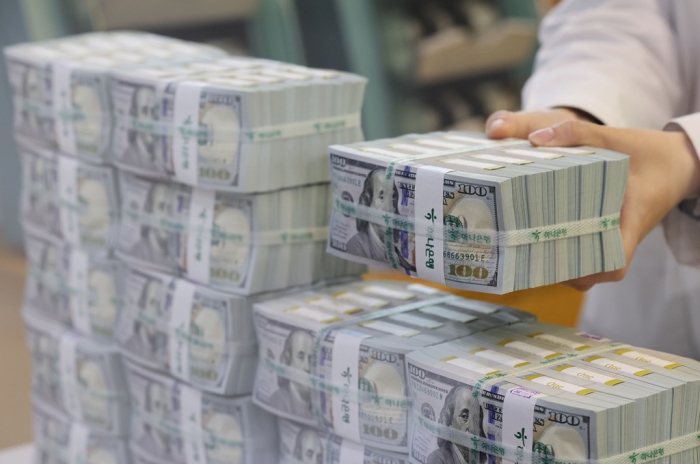Foreign exchange
S.Korea, Japan seal 3-year $10 bn currency swap deal
The agreement will deepen cooperation between the two countries, contributing to regional and global financial stability
By Dec 01, 2023 (Gmt+09:00)
1
Min read
Most Read
LG Chem to sell water filter business to Glenwood PE for $692 million


KT&G eyes overseas M&A after rejecting activist fund's offer


Kyobo Life poised to buy Japan’s SBI Group-owned savings bank


StockX in merger talks with Naver’s online reseller Kream


Meritz backs half of ex-manager’s $210 mn hedge fund



South Korea and Japan on Friday revived their bilateral currency swap line to boost their dollar liquidity amid improved diplomatic relations.
The two countries' central banks said they clinched a $10-billion currency swap deal following an agreement between their finance ministers on June 29. The swap program, which allows Korea and Japan to exchange their local currencies for US dollars, will be in effect for three years.
Under the agreement, when Korea provides dollars to Japan, Japan would deposit yen with its neighbor. Similarly, when Japan supplies dollars to Korea, Korea would deposit won in Japan.
“Japan and Korea believe that the BSA, which aims to strengthen and complement other financial safety nets, will further deepen financial cooperation between the two countries and contribute to regional and global financial stability,” said the Bank of Korea and the Bank of Japan in a joint statement, referring to the bilateral swap arrangement.
The two countries signed their first currency swap pact of $2 billion in 2001. The arrangement grew to $3 billion in 2005, $8 billion in 2006 and as much as $70 billion by 2012.
But the swap line shrank after 2012, when former Korean President Lee Myung-bak visited Dokdo, a group of East Sea islets under territorial dispute between the two countries.
The arrangement expired in February 2015 as issues such as sexual slavery during World War II further soured bilateral diplomatic ties.
Write to Jung-hwan Hwang at jung@hankyung.com
Jongwoo Cheon edited this article.
More to Read
-
 Foreign exchangeS.Korea, Japan to resume bilateral currency swap for dollars
Foreign exchangeS.Korea, Japan to resume bilateral currency swap for dollarsJun 28, 2023 (Gmt+09:00)
3 Min read -
 Foreign exchangeS.Korea to discuss bilateral currency swap with Japan
Foreign exchangeS.Korea to discuss bilateral currency swap with JapanJun 09, 2023 (Gmt+09:00)
2 Min read -
 Foreign exchangeS.Korea-Indonesia central banks renew currency swap agreement
Foreign exchangeS.Korea-Indonesia central banks renew currency swap agreementMar 06, 2023 (Gmt+09:00)
1 Min read -
 Foreign exchangeS.Korea-Australia renew $8.1 bn currency swap deal for 5 years
Foreign exchangeS.Korea-Australia renew $8.1 bn currency swap deal for 5 yearsFeb 07, 2023 (Gmt+09:00)
1 Min read
Comment 0
LOG IN


